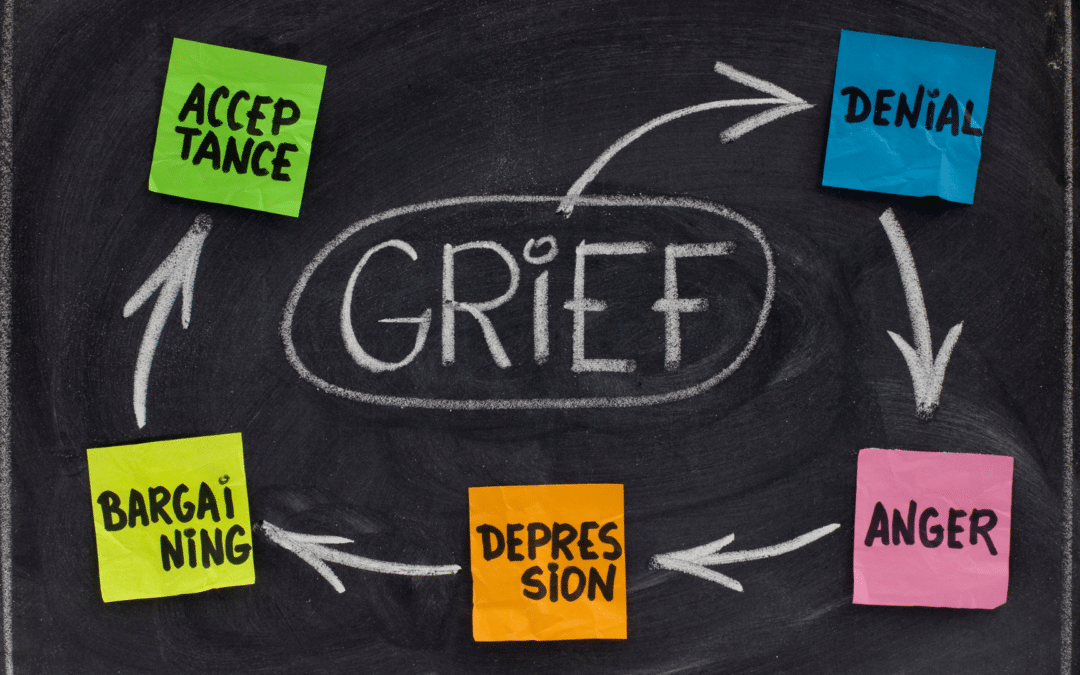


Psychiatrist vs Psychologist: Whom Should I Seek?
There is often much confusion between the terms psychiatrist and psychologist. People may use these terms interchangeably, but this is not to be the case. While both psychiatrists and psychologists treat people suffering from mental health issues and behaviour disorders, they are not the same. When should I see a psychiatrist? Is psychiatry and psychology even the same thing? Who should I see first? Such thoughts may run through your mind when mental health treatment is brought up. In this article, we hope to clear the doubts and achieve greater clarity on who they really are and how they differ.
Before we begin, if you’re reading this article to find important insights on seeking help from a mental health professional, we would like to commend you for taking the necessary steps to help yourself or your loved one. Making such a decision can be very daunting, and your mind might be in a disarray with constant worries of familial, societal and cultural stigma. However, it is ever so important to remember that there is no shame or embarrassment in wanting to help yourself or your loved one get better. Mental health is equally as important as physical health and seeking help is a sign of strength rather than weakness.
What’s the Difference Between a Psychiatrist and a Psychologist?
Fundamentally, the biggest difference between the two is in the approach they take towards treating mental disorders, and the capacity to prescribe medications. Unlike psychologists, psychiatrists are trained medical doctors at their core. Amongst the network of mental healthcare professionals, psychiatrists are certified to provide neuropharmacological support that is deemed essential in stabilising certain mental conditions, such as where chemical imbalances in the brain are involved.
As medical doctors, psychiatrists play a crucial role in the diagnostic process, as well as the prevention and treatment of emotional, mental, behavioral, and developmental issues. While conducting assessments, they may also involve relevant physical examinations, blood tests, or pharmacogenomic testing to narrow down the scope of diagnosis. While psychiatrists specialise in the mental phenomena, such physical examinations cannot be omitted entirely especially if they provide important clues to help them rule out other possible physical conditions.
Psychiatrists also have the capacity to assess your medical history. Physical and mental wellness go hand-in-hand – psychiatrists will need to grasp the full picture before finalising on a diagnosis. On the Huffington Post, Carol W. Berman, M.D., a clinical assistant professor of psychiatry at NYU Medical Center in New York City, writes, “Because we learned how the body interacts with the mind, we can rule out physical disorders as a cause of mental illness. This is important, since a person may have a hyperactive thyroid, for example, which can trigger panic attacks, anxiety, insomnia, or anorexia. We can look at thyroid blood tests or have a patient consult an endocrinologist if we suspect the problem stems from thyroid disease.”
In contrast, psychologists are not trained medical doctors, and thus cannot conduct any physical examinations nor prescribe medications. Clinical psychologists however, possess an accredited Master’s in Applied Psychology at the very minimum, and can make a diagnosis for the patient if he thinks he has a mental health condition.
Psychologists typically make use of various methods of psychometric testing, personality tests, observations and interviews to come to a conclusion. But that’s not all – psychologists also engage in psychotherapy treatment, with common forms including cognitive behavioural therapy (CBT). Psychotherapy aims to help clients identify their key issues and concerns, before moving on to create a treatment plan to achieve the desired outcomes. Often conducted over several sessions, psychotherapy equips the individual with problem-solving and emotion-coping strategies to overcome the problem. For example, if a client comes in hopes of seeking help for social anxiety, psychotherapy (such as CBT) would be greatly beneficial in tackling maladaptive, limiting thoughts and behaviours that fuel negative emotions.
While there are differences in qualifications and the methods of treatments applied by psychiatrists and psychologists, it is key to note that they still work closely together. For the optimal treatment of certain mental health conditions, psychiatrists may refer you to psychologists for concurrent psychotherapy. Likewise, if a clinical psychologist determines your condition to be better managed with medications, a referral to a psychiatrist can be expected. Often once a proper diagnosis is done, the psychiatrist and psychologist may work together to build a treatment plan for the patient, focusing on managing symptoms through the use of medications and psychotherapy.
Who Should I See First?
Where physical symptoms may be severe, or where it may be hard to take basic care of yourself, turning to a psychiatrist would be a good option. After all, psychiatrists are trained medical doctors who can also work with your primary care doctor (if any) to provide optimal treatment. It is also suitable for individuals who are unsure as to whether their physical symptoms are linked to other underlying medical conditions. In such cases, psychiatrists will be able to detect a medical mimic. To put it simply, take for example a presenting complaint linked to the shortness of breath. While it may seem like a panic attack, it is crucial to eliminate any other clinical suspicions of lung diseases such as pulmonary embolism.
On the other hand, you may choose to make a trip to see a psychologist if you think you have a less severe mental condition. For individuals seeking to overcome phobias or resolve difficult issues in life, it may be more effective to undertake psychotherapy. A Psychologist can help you work through your problems, deal with emotional challenges or cope with particularly traumatic life events so as to make positive changes in your life.
We can all play a part in alleviating our own or our loved one’s suffering by increasing our understanding of mental health disorders. If you’re still struggling with making a decision after much thought, making the first step to contact a professional would help. You can be assured that the team at Promises will serve with your best interests at heart, and will work closely with you to provide optimal treatment.
References:

Discipline: What Parents Get Wrong, and How to Get It Right
Spare the rod and spoil the child – is this a sensible justification for the use of physical punishment in disciplining a child? What is discipline really all about? To some parents, discipline is associated with corporal punishment, such as by caning, slapping or spanking. In extreme cases, it may include forcing hot sauce into a child’s mouth as punishment for swearing. Sometimes, it becomes difficult to draw the line between reasonable corporal punishment and physical abuse.
Not many parents will admit that they cane or spank their kids. But a survey conducted by an international research agency YouGov found that close to 80 percent of parents in Singapore adopted such physical means of punishment. Does caning still have a place in modern-day parenting? In some way or another, we are all shaped by different life experiences, cultures and familial backgrounds. It shouldn’t be a surprise that we each possess differing opinions and perceptions. Some of these parents themselves may have been parented under strict and harsh supervision, where they had grown accustomed to physical forms of discipline and do not view them to be problematic. However, there is an increasing need to recognise that the act of disciplining children can take on many other forms. While we do not have the right to correct your teaching methods, we hope to convince you, as well as other parents out there, that corporal punishment is not the only mean to teach a child good behaviour.
Why Corporal Punishment Isn’t The Best
We acknowledge that parenting isn’t easy. When your toddler “accidentally” smashes that one precious family heirloom, or when your underaged teenager gets caught for drinking, you might fly into a rage and rush to pick up the cane. However, corporal punishment has been proven to be ineffective and potentially harmful. It may serve its purpose of an immediate response to an undesirable behaviour and to curb it temporarily, but it will leave a long-lasting psychological mark on your child. As published in numerous research journals, physical punishment may bring about more harm than good. Let’s break it down:
- Deteriorating Relationships
Consider the message that you’re sending your child as you’re hitting him. While you may think nothing of it in a fit of anger, your child may – whether subconsciously or not – internalise that he is unworthy of love, or that he is worthless. Over time, this will also strain your relationship with your child.
- Increasing Your Child’s Susceptibility to Mental Disorders
Physical aggression often ties in with psychological aggression. At the end of it all, your child may develop a flawed belief that using violence to achieve desired results is completely acceptable. Not only does corporal punishment increase a child’s aggression, it may also lead to antisocial behaviour, as well as other mental health disorders. Long-term use of violence against a growing child can lead to the development of depression, anxiety, personality disorders, as well as intellectual disabilities. In particular, it may also cause a downward spiral of your child’s self-esteem.
- Failing to Induce the Desired Behavioural Change
Corporal punishment does not develop compliant behaviour, it simply stops undesirable behaviour temporarily. This may give parents a false sense of security, and trap them into thinking that they’ve successfully steered their children away from unwanted behaviours. However, the reality is that children may only stop immediately for the fear of being punished further. There is always a chance for such behaviours to return. Assuming your teenager picks up a bad habit but is afraid of being punished, she may instead resort to various means of hiding it from you. As you can see, the unwanted behaviour isn’t eradicated at all.
By now, you’re probably curious about how you can encourage behavioural change more effectively without physical punishment. Here, we’ll share some useful tips in regards to educating your child the right behaviour.
When your child misbehaves, you can consider withholding or removing certain privileges from him. This is certainly less harmful psychologically and physically as opposed to spanking him. For example, if your child leaves his toys lying all over the bedroom floor, you can opt to confiscate them for a day or two. Do note that this will be particularly effective if the consequence is directly linked to the unwanted behaviour. In this case, it wouldn’t be ideal to punish the child by banning TV time for a day.
Needless to say, positive reinforcement plays a huge role in disciplining your child too. If your parenting style solely includes punishments and no rewards, your child may grow up feeling resentful, unhappy and lack a sense of self-worth. Be equally generous with praises and rewards when deemed fit – balance is key! If possible, you may also tie in a reward system with a certain behaviour that you want to encourage. Let’s say you want your child to develop a habit of returning home no later than 10pm. The consequence for not sticking to the curfew may be grounding her for the next two days. However, if your child adheres to the rules and returns home by the stated curfew for the entire week, perhaps you can reward her for being responsible and consistent. This could mean giving her an additional hour out during the weekends, or bringing her out for her favourite meal.
One major issue with corporal punishment is that apart from inflicting physical and psychological harm, it does not direct your child towards the desired behaviour. Discipline should be aimed at teaching. Ensuring your child learns from the event and to correct themselves in the future is what really matters. With that said, sometimes teaching them new skills can go a long way. If your child throws temper tantrums, teach him how to calm himself down and to deal with his frustration instead of spanking him. Such problem-solving and emotion-coping strategies will certainly help your child to build emotional resilience as well.
The environment around us can influence the way we grow and behave too. If you have children or teenagers at home, lock the cabinets to the heavy liquor. If you want to foster a non-gambling home environment, keeping items such as poker cards away from sight can also be beneficial. Small changes to the surroundings can have more influence than you may think, and will also prevent the need for any serious punishment.
Above all, it is necessary to be consistent with what you say and encourage your children to do. Be consistent with the rules you put forth and stand your ground, it is important for a child to know that the consequences and rewards aren’t selectively enforced. Guiding children away from misbehaviour can be a tough feat at times, but just as you’re about to reach for the cane, we hope you’ll think twice.
References:
- https://www.straitstimes.com/singapore/education/most-parents-here-dont-spare-rod-on-kids-at-home-study (Accessed 22/02/2021)
- https://www.apa.org/research/action/speaking-of-psychology/disciplining-children (Accessed 22/02/2021)
- https://www.healthxchange.sg/children/parenting-tips/child-discipline-physical-punishment-psychological-marks (Accessed 22/02/2021)
- https://www.apa.org/monitor/2019/10/child-discipline (Accessed 22/02/2021)

Understanding Grief and Bereavement
“Grief is like the ocean; it comes in waves, ebbing and flowing. Sometimes the water is calm, and sometimes it is overwhelming. All we can do is learn to swim.” – Vicki Harrison, Author.
Losing someone we love is possibly one of the toughest, most dreadful things we will ever experience in our lifetime. The feelings of sadness, confusion and anger can be immeasurable, dominating our days and causing us to withdraw from the real world. For those blindsided by sudden losses, it can be especially traumatising to realise that we never really know when life may throw us a devastating curveball and crush our dreams, forcing a new reality upon us. Whether through bereavement or other types of losses (eg. divorce, relationships, financial and health losses etc) grief can pose a major threat to our mental state. As painful thoughts and emotions spiral, some may begin to question the comprehensibility of life or doubt their own competence when they find their core beliefs of a secure and benevolent world challenged. Without adequate psychological buffer and defence, the world feels shattered and we may be overwhelmed by loss.
Psychiatrist Elisabeth Kübler-Ross’s grief model noted there are five stages commonly experienced in grieving.
- Denial: Avoidance, confusion, shock, fear and disbelief.
- Anger: Frustration and irritation.
- Bargaining: Struggling to find meaning in life, or constantly telling yourself, “If only i had…”
- Depression: Feeling helpless, lonely and wanting to withdraw from life. This stage is also the most commonly associated with grief.
- Acceptance: Exploring options, putting new plans in place and trying to move on.
It is important to note that these stages are not necessarily linear nor do they illustrate a complete picture of grief. Many who are grieving feel emotionally or physically numb as they subconsciously block painful memories to protect themselves. Some may experience a roller coaster of emotions and are drained of energy as they process the loss. Everyone’s experience with grief is different and very personal – it all boils down to how we cope with crisis and the resulting emotions. Don’t worry if you find your grief experience taking longer than others to complete. Grief is a normal and natural response to loss. We need to be gentle and compassionate with ourselves during the season of grieving
Practicing self-care is a great place to start. Though painful thoughts may flood your mind and you may find yourself wanting to withdraw, taking care of your body is crucial. This can mean maintaining a healthy diet, going for walks in nature, exercising, and ensuring that you get good sleep. Listen to your body and don’t hold yourself back from enjoying the activities that you usually find pleasure in, just because you are still in the grieving process. If you like to read, take a trip to the nearest library. If you find comfort in being around animals, go visit a cat or dog café. These activities help provide much-needed relief and prevent you from being consumed by grief.
Art can also be a meaningful outlet for repressed emotions. Some people may find themselves ruminating over perceived missteps, or wishing they could have done something to change the outcome. It doesn’t matter if you lack artistic talent; painting, drawing, poetry, or even creative journaling can serve to declutter your mind. The creative expression of emotions can be a therapeutic process for grieving individuals to connect with their inwardly-held emotions. Story-telling through art enables them to express deep seated emotions that would have otherwise been hard to access or articulate.
When ready to be more social, it could be good to catch up with family and friends. Some also find it beneficial to join grief support groups and share their experiences. These groups help them feel less isolated and offer emotional support and encouragement as they witness others along different stages of their grief journey. While social support can help take the weight off your shoulders, it can be tough to confide in others when you’re mourning a loss. Fears of having others gossip behind your back or having others pry into your personal privacy, divulging every minute detail – these are completely valid understandable concerns and professional therapy might just be the safe environment you need to work things out.
In professional therapy, you can rest assured that your privacy is kept strictly confidential while receiving professional guidance to help you through difficult times. Therapy is an incredibly valuable and effective way to help yourself heal from your emotional wounds. If you find yourself stuck in an unhealthy loop of distress over unresolved issues and experience difficulty adjusting to losses, a professional therapist can work with you to make sense of the loss and navigate your way through grief with greater emotional resilience. The therapist can also help you discover constructive and authentic narratives that enable better integration of the loss and meaningful transition to life after the loss.
References:
- www.sciencedaily.com/releases/2018/10/181022153512.htm (Accessed 05/02/2021)
- https://www.psycom.net/depression.central.grief.html (Accessed 05/02/2021)
- Edmondson, D., Chaudoir, S.R., Mills, M.A., Park, C.L., Holub, J., & Bartkowiak,J.M. (2011) From shattered assumptions to weakened worldviews: Trauma symptoms signal anxiety buffer disruption. Journal of Loss and Trauma, 16 (4), 358-385
- Janoff-Bulman R. Shattered assumptions: Towards a new psychology of trauma. New York: Free Press; 1992. [Google Scholar]
- Neimeyer, Robert & Burke, Laurie & Mackay, Michael & Stringer, Jessica. (2010). Grief Therapy and the Reconstruction of Meaning: From Principles to Practice. Journal of Contemporary Psychotherapy. 40. 73-83. 10.1007/s10879-009-9135-3.

Types of Psychotherapy Methods (DBT vs ACT) Used To Treat Depression
Many of us are absorbed in an endless, self-defeating rat race. The nature of modern society has instilled in us a “winner/loser” mindset, and its systems highly prioritise external rewards and punishments as measures of our personal success and social worth. This oftentimes forces us to shift our perception of self-worth from the satisfying efforts of personal endeavour, to the critical imperative of achieving yardsticks of success defined by the rest of society. When we are constantly striving to win a race while focusing on external factors largely beyond our design or control, we’re surely putting ourselves at a disadvantageous position.
The overwhelming pressure to conform to societal expectations, or to outrun others in the race of life, can make one particularly susceptible to depression if negative emotions are not managed well. As we aim for perfection – as most people would – we need to understand that total perfection is unattainable. The more we believe that we have failed to reach a certain state of “perfection”, the greater the extent to which we experience low self-esteem, self-hatred, and depression. Depression can be extremely debilitating to one’s mental health. Apart from the diminishing enthusiasm for life and self-esteem, depressed individuals may self-isolate and pull away from their social circles, making it all the more difficult for them to get the help they need.
Perhaps one of the healthiest things we can do for ourselves is to accept who we are. Self-acceptance might just be the antidote to excessive self-resentment and discontentment. It is important that we fight against influences that force us to conform to certain standards rather than to accept ourselves. Presented below are a couple of talk therapy methods that we use to guide you towards achieving that.
What is ACT?
Acceptance and Commitment Therapy (ACT) is a form of talk therapy suitable for the treatment of individuals displaying symptoms of depression. As its name suggests, it’s core aims are to help individuals accept whatever is beyond their control, and to commit to actions or habits that will serve to enrich their quality of life. ACT helps us to clarify what is genuinely important to us (i.e our values), and thus assists us to set more meaningful and life-enriching goals. Along the way, it also guides us to practise useful emotion-coping strategies such as mindfulness in order to equip us with skills to handle negative emotions effectively and healthily. While the number of ACT sessions may differ for each individual, the benefits acquired by clients are largely similar:
- Learning to be fully present in the “here-and-now”, and to stop obsessive worrying over the past or future
- Become aware of what they are avoiding (be it consciously or subconsciously), and to increase self-awareness
- Learning to enjoy greater balance and emotional stability, and to be less upset by unpleasant experiences
- Learning to observe thoughts such that one does not feel held captive by them, and to develop openness
- To develop self-acceptance and self-compassion
- Clarifying one’s personal values and taking the appropriate action towards his goals.
You may be wondering, does it really work? The good news is that ACT is considered to be an empirically validated treatment by the American Psychological Association (APA). Through program evaluation data, research has also shown that Veterans who completed ACT treatment phases displayed a significant decrease in depression in addition to improved self-awareness and a better quality of life.
What is DBT?
Apart from ACT, another alternative for the treatment of depression is Dialectical Behaviour Therapy (DBT). While originally used for the treatment of Borderline Personality Disorder, DBT has since been adapted to treat other mental health conditions including depression, anxiety, and post-traumatic stress disorder. A type of cognitive behavioural therapy, DBT aims to help individuals who struggle with emotional-regulation and are exhibiting maladaptive or self-destructing behaviours. It is not an uncommon sight for persons with depression to engage in substance-abuse or self-harm. As such, DBT helps to build on distress tolerance, such that people who struggle with these are able to handle negative life-circumstances better and to avoid falling back on such devastating coping methods.
DBT can be considered a holistic approach to depression treatment. Apart from tackling maladaptive behaviours, it encourages a shift in the clients’ perspective on life, for it equips them with the necessary skills to cope with intense emotions. In short, it empowers you to cope with them with a positive outlook. DBT also recognises that interpersonal effectiveness is key, and hence it strives to help these troubled individuals to reconnect and enhance their relationships with others.
ACT Versus DBT
ACT and DBT are both highly effective methods of treatment for depression. Both forms of psychotherapy allow for individuals to tackle the notion of suffering head-on, and to avoid suppressing undesirable or uncomfortable feelings. Both promote psychological flexibility, and encourage people to behave in a conscious or effective way towards their life-choosing directions. The practice of mindfulness is also a commonality between both therapy methods, and it plays a crucial role in ensuring that persons are well aware of their values, goals and emotions.
However, overlaps between the two are considerably limited too. The main differences between ACT and DBT would be that DBT leans towards a more educative approach while ACT emphasises an experiential one. Perspective wise, DBT adopts a biosocial perspective on behaviour while that of ACT is contextual. Moreover, the underlying philosophy behind each form of therapy also differs. DBT philosophy is dialectical (i.e using logical reasoning and analysis), while the philosophy behind ACT is functional contextualism. With that said, the analysis of clients’ experiences, the use of languages as well as experiential exercises will be different for each type of therapy.
References:
- Richard Hill, The Rise and Rise of Depression in a Competitive Winner/Loser World, video recording, Mental Health Academy
<https://www.mentalhealthacademy.co.uk/dashboard/catalogue/the-rise-and-rise-of-depression-in-a-competitive-winner-loser-world/video> (Accessed 13/02/2021)
- https://www.mentalhealth.va.gov/depression/act-d.asp (Accessed 13/02/2021)
- https://behavior-behavior.org/act-fap-dbt/ (Accessed 13/02/2021)
